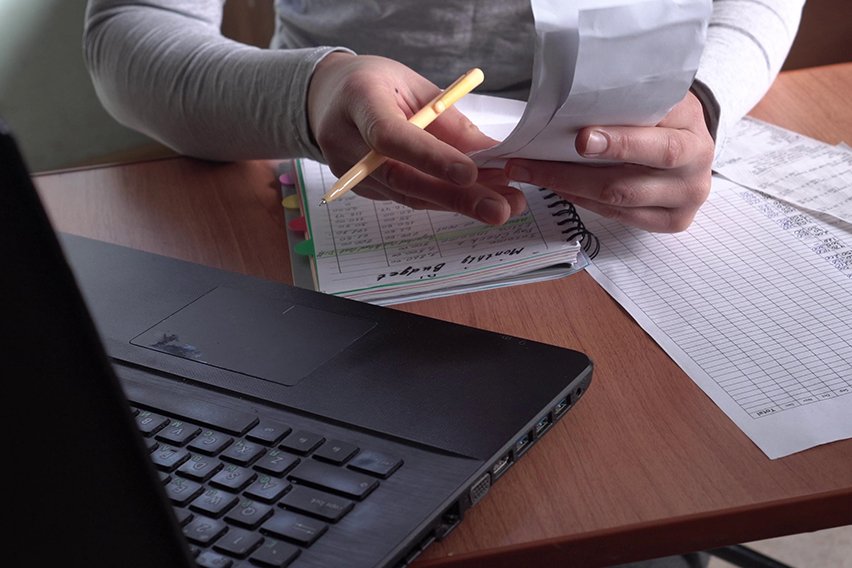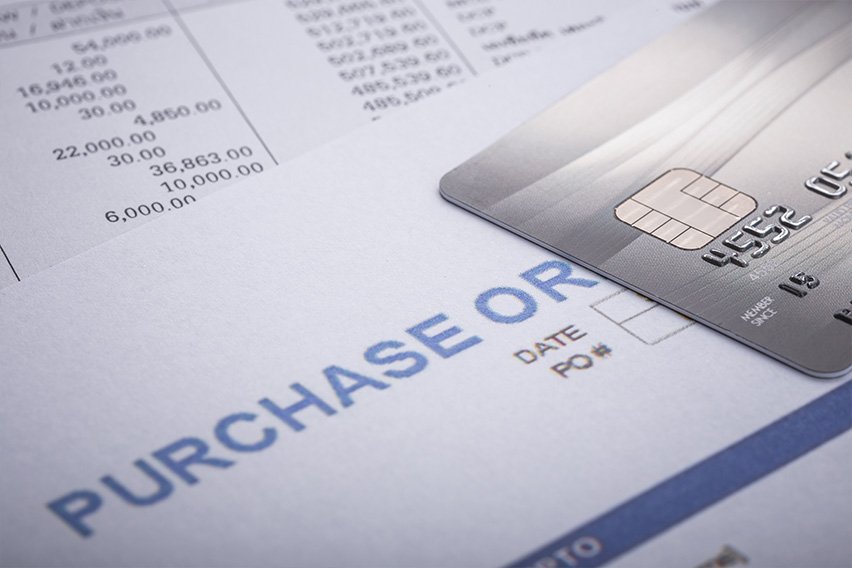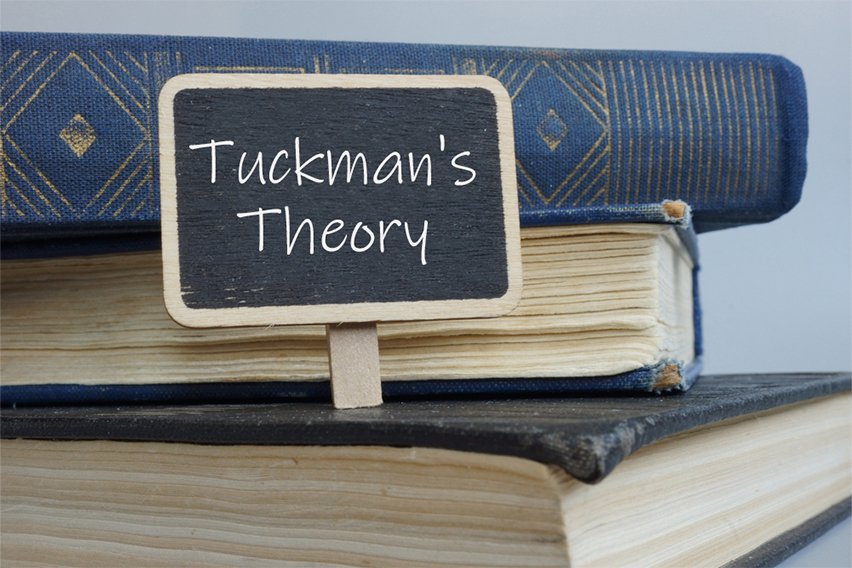25 Business Tax Write-Offs for Small Business

Keeping track of all your expenses and small business tax deductions can be a challenge. There is a lot to know and consider, and there are different requirements and criteria for you to meet. So what exactly do you need to know and where should you start?
Well, we put together this guide to break down everything you need to know about tax deductions you can write off for your small business. Read on to learn about 25 different tax write-offs and see if you’re eligible.
Table of Contents
What Are Tax Write-Offs for Small Businesses?
Top 25 Small Business Tax Write-Offs
What Are Tax Write-Offs for Small Businesses?
As a small business owner, there are often going to be expenses you incur. These can range from travel expenses, workspace expenses, professional services, and many more. It can be incredibly helpful to use an online accounting software like FreshBooks to organise all of your receipts.
But while there is a range of write-offs for small businesses, there can be different circumstances to understand. Only some business expenses are able to be deducted. And others are only able to be deducted by a certain percentage.
And if you’re self-employed, your business will also have several different running costs and expenses. Yet, the good news is that deducting some of these costs will not only help you save money, but it can allow you to better understand your taxable profit.
One of the biggest things to remember when it comes to business tax write-offs is that they must be for business use. This means that you can’t take money from the business, use it for a private purchase, and then write it off.
As well, there are even some specific capital allowances you might be eligible to claim. For example, these might include machinery, equipment, and business vehicles, such as a car or van.
If you operate an online business, some knowledge about tax-deductible business expenses can help you make better business choices in the future. This will contribute to steady growth while allowing you to save money at the same time. There are even some day-to-day expenses that can get deducted. But when you do make a deduction, make sure you’re reporting them properly in your accounting records.

Top 25 Small Business Tax Write-Offs
There can be a lot to balance, know, and understand in regard to business tax write-offs. Only some businesses are eligible for certain ones and there are some requirements to meet. Below we break down the top twenty-five business tax write-offs.
Business Meals
There are two places where you can deduct costs for meals associated with your job. If you can prove that the meals you take are only taken for business-related reasons, you can deduct them from your taxes. When you are able to do this, you will get a 100% tax deduction.
Some of the most common ways to write off business meals are when you are out on legitimate business or if you’re staying away from home. You can claim the cost of food and drink as a business tax deduction. Usually, this will get included with other travel expenses you incur for business purposes.
Work-Related Travel Expenses
If you have to travel for work, you might be able to get a tax break on the cost of your lodging or food expenses.
Unless you’re travelling to a temporary place of employment, you cannot claim travel expenses for getting to and from work. Some of the most common work-related travel expenses include the likes of:
- Costs associated with using public transportation
- A hotel room if you need to stay overnight
- Food and beverage
- Tolls and congestion charges
- Parking charges
- Costs of business calls
- Printing costs
- Additionally, you might be able to deduct business mileage from your taxes
Work-Related Car Use
If you commute to work in a car, van, motorbike, or bicycle, you might be eligible for tax relief. Unless it’s a temporary place of employment, this excludes travel to and from work.
What you’re using will determine how much you can claim. For example, you might have to consider if you’re using:
- A vehicle that you personally purchased or leased
- A vehicle that your employer owns or leases
You might be eligible for tax relief based on the authorised mileage rate if you use your own vehicle or vehicles for work. This takes care of the expense of maintaining and owning your car. You cannot make a separate claim for items like:
- Fuel
- Electricity
- Repairs
- Road taxes
To determine how much you can claim for each tax year there are also a few things you will need to keep track of. These can include:
- The dates and distance travelled for work
- The total distance travelled in each type of work vehicle
- Subtracting any reimbursement your employer gives you for expenses, which is often referred to as a mileage allowance
Business Insurance
Business insurance is regarded as an allowable expense. This means that it is a necessary cost that keeps your company operating smoothly. For this reason, you can claim it as a tax deduction. Therefore, you can deduct business costs from your income, such as professional indemnity insurance, when figuring out your taxable profits for your tax return.
Home Office Expenses
If you regularly work from home, you might be eligible to deduct certain expenses, including those related to “working from home tax relief.” These can include a portion of the rent, interest on your mortgage, insurance, and council tax. There are a few requirements you must meet in order to claim these expenses. The HMRC website provides a full breakdown, including the amount you can claim.
Office Supplies
If you normally use an item for less than 2 years you can claim them as allowable expenses. These can include supplies like stationery, computers, and even printers. Stationery items you can claim include postage, printing, printer ink and cartridges, and computer software. You can also claim expenses for mobile, phone, and internet bills.
Phone and Internet Expenses
You might be eligible to claim mobile phone expenses and business telephone expenses if it’s a dedicated landline. As well, you can also claim costs for business-only calls and reclaim VAT. You can also deduct a portion of internet or broadband costs. Being able to claim these costs can make a big difference if you work from home often and regularly use your phone and internet.
Business Interest and Bank Fees
It’s always a good idea to have separate credit cards and bank accounts for your business. Any annual or monthly service fees, transfer fees, or overdraft fees levied by your bank or credit card provider are deductible.
Depreciation
Depreciation isn’t deductible for tax purposes. Instead, you might be able to use capital allowances to offset the cost of some assets from your taxable income. You must know the date you first used the asset in order to calculate depreciation.
Professional Service Fees
You might be able to claim tax relief for certain professional membership fees. But, you can only do this if the membership fees contribute to you being able to do your job. As well, you can claim tax relief for some annual subscriptions. For example, if you pay fees to learned societies or professional bodies and it’s relevant to your job, you should be able to deduct the costs.
Salaries and Benefits
You are required to deduct certain amounts from salaries and benefits. This can include income tax, student loan repayments, or national insurance, for example. But you cannot claim your salary or benefits as deductions on a tax return.
Charitable Contributions
When you submit your Self Assessment tax return, you can claim a refund for the difference between the tax you paid on the donation and the money the charity received. Call HMRC to inform them of your charitable contributions if you choose not to file a Self Assessment tax return.
Education
Training and education costs can get deducted as long as they are related to your business and help you advance your knowledge and abilities. For example, this might include something such as a refresher course. The training programmes need to be applicable to your company. You cannot make a claim for training sessions that assist you in beginning a new business.
Child and Dependent Care
You can make a claim for the Child Tax Credit as long as you are already enrolled in receiving the Working Tax Credit. But, you can only claim and deduct expenses for children that you are directly responsible for. The amount you receive is going to depend on when your children were born. Check the HMRC website for a full breakdown of costs and requirements.
Energy Efficiency Expenses
Some capital allowances are claimable if you make a purchase or investment in energy-efficient items. This can also include low or zero-carbon technology that you purchase for your business. Ultimately, claiming these capital allowances will reduce the total amount of tax you have to pay.
Investments
In many cases, you can receive a Capital Gains Tax relief for investments. It only includes 50% of the original investment and can only go up to a total of £100,000. The maximum you can receive in return is a total of £50,000 and you don’t have to sell an asset before investing. But, if you do sell an asset, it must be within the same tax year that you claim the relief or deduction.
Foreign-Earned Income Exclusion
If you live in the UK and have income or capital gains from abroad, you typically need to file a Self Assessment tax return. However, some foreign income is taxed in a different way.
You don’t need to file a tax return if you meet the following criteria:
- You only receive dividends from abroad
- You have fewer dividends overall than the £2,000 dividend allowance, including dividends from the UK
- You have no additional income to disclose
Medical Expenses
If the insurance or medical care you have isn’t exempt, you must report it to HMRC. You might also be required to deduct the amounts and pay tax as well as some National insurance. You can claim relief for the cost of consultant and doctors fees. As well, you might be eligible for treatments or certain items that your doctor prescribes.
Real Estate Taxes
There are some real estate taxes that you could write off and deduct. It’s important to be aware of some criteria and requirements as not every tax deduction works the same way. Some of the most common real estate taxes you can deduct include:
- Interest
- Repairs and maintenance
- Office costs
- Training and research
- Legal and professional fees
- Rental losses
Mortgage Interest
The tax relief surrounding mortgage payments and interest has changed in the last few years. Relief for rental properties is no longer available as an expense. Instead, you can receive a tax reduction that reduces your overall income tax liability. You can deduct interest paid on your first and second mortgages, but only up to a certain limit. Anything over this limit is not tax deductible.
Moving Expenses
Most moving expenses are not tax deductible. However, if your employer chooses to contribute to some of the relocation costs you incur, there might not be a need to pay tax on them. With that said, there are some relocation costs that you can deduct up to a total of £8,000. These are known as qualifying costs.
Retirement Contributions
Private pension contributions are sometimes eligible for tax relief on pension contributions. It works up to a total of 100% of annual earnings. In most cases, you can receive the tax relief straight away as long as your employer takes pension contributions out of your salary before deducting tax.
Advertising and Promotion
Advertising and promotion write-offs can vary. You should be eligible to claim allowable business expenses if you meet certain criteria outlined by the government. Some common deductible expenses include website costs, advertising in newspapers, and bulk mail advertising. You can’t claim costs for event hospitality or entertaining clients.
Client and Employee Entertainment
According to HMRC, client and employee entertainment is not an allowable expense. However, you might be able to claim VAT for certain costs of entertaining overseas customers.
Startup Expenses
Managing expenses and tax requirements as a startup can be overwhelming. The good news is that you can claim some of these costs as deductions. Some of these include office costs, travel costs, staff costs, and raw materials, for example.
To make your life as easy as possible, FreshBooks provides an incredible solution to organise all your tax write-offs and expenses. The platform is easy to use, intuitive and contains everything you could need for understanding your eligible deductions.

Key Takeaways
Finding ways to save money and reduce the amount of tax you owe can make a huge difference for your business. Being able to write off certain expenses can allow you to increase cash flow, reduce your taxable income amount, and focus on growing your business into the future.
Tax write-offs can vary and each one comes with its own requirements and criteria to meet. For example, you can write off certain vehicle costs but only if the vehicle is used for business purposes. As well, most client entertainment costs are not tax deductible. Use this article to familiarise yourself with some of the most common tax write-offs, but visit the HMRC website for a full and accurate breakdown.
FAQs on Business Tax Write-Offs
How do tax write-offs work for small businesses?
This can all depend on the type of business you operate and the tax write-off you want to get relief for. Typically, you will include any relevant tax write-offs when you submit your self-assessment to HMRC.
How much can you write off on an LLC?
There is a very long list of what’s eligible to be written off on an LLC. The most common include startup costs and main operating costs. You can also deduct rent costs, office costs, and certain business taxes.
What happens when you write something off as a business expense?
When you write something off as a business expense you will receive some tax relief in return. Some expenses are fully deductible, meaning you will receive the full amount back. Some other expenses are only eligible for a certain percentage. Either way, it helps reduce your overall taxable income.
What deductions can you claim without receipts?
Keeping accurate records of your receipts is a very good idea. But just because you don’t have a receipt doesn’t necessarily mean you can’t claim something. If there is no receipt, be sure to keep detailed notes, such as what you purchased, the location, and the date.
RELATED ARTICLES

 Net Revenue: What Is It & How Does It Differ From Gross Revenue?
Net Revenue: What Is It & How Does It Differ From Gross Revenue? 6 Top Decision-Making Techniques for Business
6 Top Decision-Making Techniques for Business Top 7 Effective Team Management Techniques & Tips
Top 7 Effective Team Management Techniques & Tips Inventory Accounting: A Complete Guide
Inventory Accounting: A Complete Guide What Is a P.O. Number on an Invoice? Purchase Order Numbers Explained
What Is a P.O. Number on an Invoice? Purchase Order Numbers Explained Tuckman’s Theory: Five Stages of Team Development
Tuckman’s Theory: Five Stages of Team Development